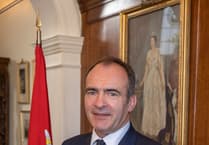The Sexual Offences and Obscene Publications Bill should not be used to curtail the freedom of the press, the Legislative Council has been told.
Members of the Legislative Council gave the first reading to the Bill which will update the island’s sexual offences for the first time in 27 years.
Kerry Sharpe, a former television producer and director specialising in documentaries and factual programmes, said that all people charged with a sexual offence, whether found guilty or not, will have that badge bestowed upon them for the rest of their lives.
However, she questioned if Tynwald extends the right of anonymity given to victims of such abuse to the alleged offenders, it would lead to other offences being treated the same way.
Mrs Sharpe said: ’The media can name anyone charged with an offence - whether it is a sexual offence, a murder, or any other offence - and will continue to do so unless a reporting restriction is imposed or there is a risk of "jigsaw" identification.
Public justice
’That is the system which has evolved over many years of the media working together with the courts in order for public justice to be carried out.
’It is possible that society has now reached a point where the public feel that it is wrong to publicly name anyone who is charged with an offence unless that person is found to be guilty.
’But, I would argue, the freedom of the press is a different subject for a different day and it’s not a subject which belongs in this Bill.’
The Bill covers a wide range of areas, including modernising the law to keep up with the digital age and outlawing such things as ’upskirting’ - taking intimate photographs under someone’s clothing, without their consent.
Tanya August-Hanson, who is guiding the Bill through LegCo said that the level of harm that sexual offences can cause in a person’s life and the number of offences that go unreported to police shows why ’the modernisation of sexual offences legislation in this island is so important’.
She added: ’This is a Bill to address an imbalance of power between victims of abuse, and those who commit these offences.
’This has for too long been in the hands of those committing harm.’




